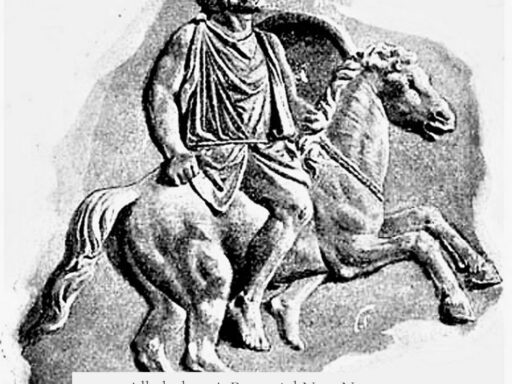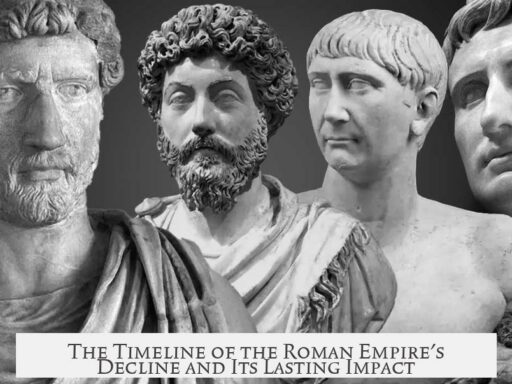Odysseus’ sexual relationships with women such as Calypso, Hecuba, and Circe, alongside Penelope’s steadfast loyalty, mirror the complex and nuanced sexual norms of ancient Greece. Men were legally required to be monogamous through marriage, but socially, sexual freedom was widely tolerated and expected, especially with non-citizens or slaves. Monogamy in law coexisted with practical polygyny in behavior and attitude.
Ancient Greek society demanded legal monogamy to ensure legitimate heirs for the polis. Men could marry only one woman at a time, and only her children were recognized as legitimate. However, this legal monogamy did not prevent men from engaging in sexual relationships outside marriage. It was commonplace and culturally accepted for men, especially aristocrats like Odysseus, to seek other sexual partners.
Sexual encounters with women like the goddess Calypso or captive Hecuba were part of the epic narrative. Odysseus’ time with Calypso is complicated; she is a divine figure and their union is partly coercive, reflecting a mix of attraction and captivity. Hecuba’s case, a war captive and slave, would likely count as rape in modern terms but was typical and unpunished in ancient Greece. Such relationships with slaves or war captives were socially permitted because these women were not under the protection of other men.
Greek laws clearly distinguished between acceptable extramarital sex and adultery with citizen women. According to scholars such as K.J. Dover, adultery (*moikbeia*) was a serious offense, not so much for moral reasons but because it violated a man’s legal and social control over his wife or female relatives. Adultery involved seduction, which was seen as a prolonged betrayal and thus more severe than rape, which was often viewed as a crime of passion. Citizens considered adultery shameful, damaging a man’s honor and reputation.
Socially, the stigma fell harder on men labeled adulterers. This was because women were thought easily influenced, so the blame targeted the man who corrupted them. However, sex with slaves, prostitutes, and non-citizens carried no such stigma, as these individuals lacked recognized social honor or protection.
The key restrictive principle in ancient Greek sexual ethics was respect for other men’s households and social status. Men were free to have sexual relations with women not under the protection of a citizen male household head. This principle explains why Odysseus’ encounters with divine figures and slaves were not condemned. Meanwhile, Penelope’s loyalty aligned with an idealized female fidelity central to Greek family structure and honor.
Evidence thus indicates that ancient Greek men were expected to be legally monogamous but socially polygynous. They could seek sexual relationships outside marriage without legal consequences or severe moral judgment as long as those relationships did not violate the honor of another citizen man. This tolerance underpinned social order and reinforced patriarchal control over legitimate lineage.
| Aspect | Ancient Greek Norms |
|---|---|
| Legal Marriage | Monogamy enforced; only married wife’s children legitimate |
| Adultery | Strictly prohibited with citizen women; grounds for legal action |
| Extramarital Sex | Accepted with slaves, non-citizens, prostitutes; no legal penalties |
| Social Consequences | Adulterers publicly shamed; no stigma for sex with non-citizens/slaves |
| Sexual Morality Basis | Respect for household honor; protection dictated permissible partners |
- Men in ancient Greece were legally monogamous but allowed wide sexual freedom outside marriage.
- Adultery with citizen women was legally and socially condemned; other sexual relations were tolerated.
- Sex with slaves, captive women, non-citizens, or divine figures carried no stigma or legal consequences.
- Respect for other men’s household honor was central in defining acceptable sexual behavior.
- Odysseus’ infidelities do not violate the social norms of his time in the Odyssey.
Odysseus’ Romantic Adventures and Ancient Greek Sexual Norms: What’s Up With That?
Odysseus has sex with several women (Hecuba, Circe, Calypso) but Penelope remains loyal to his husband. Odysseus’ infidelity is not chastised in the story, so how commonplace was this ideology of sex in ancient Greece? Were men expected to be monogamous? Let’s dive into the tangled web of ancient Greek sexual morals, societal expectations, and what Odysseus’ escapades really tell us.
First, Odysseus’ “side stories” aren’t about casual flings. They serve to highlight norms and attitudes of ancient Greek society, especially around marriage, loyalty, and sexuality.
The Odyssey’s Hero and His Not-So-Monogamous Ways
Odysseus spends a lot of time, literally years, with women who are not his wife, Penelope. In Book 5, we find him stranded on Calypso’s island. Calypso is a goddess who holds him captive, and their relationship is complicated. Odysseus sleeps with her every night, but he’s not exactly thrilled about it. Scholars even suggest the relationship could be coercive or bordering on rape.
Then there’s the encounter with Circe, the enchantress who seduces and detains him. And let’s not forget Hecuba—Odysseus’ interaction with her would be considered rape today since she was a war captive, essentially a slave. Yet, this was normal back then. Greek men commonly had relations with their slaves without societal or legal pushback.
Meanwhile, Penelope, the paragon of loyalty, waits patiently in Ithaca, fending off countless suitors while Odysseus is away. Her faithfulness is celebrated, but Odysseus’ infidelities? Not exactly condemned. Curious, right?
Were Men Expected to Be Monogamous? Well… Sort Of.
Let’s clear the air: legally, the Greeks practiced monogamy. That means a citizen man could have only one official wife at a time. This system aimed to protect the legitimacy of offspring and ensure citizens were born to socially recognized unions. Only the children of the lawful wife could inherit property and status.
However, Greek society was openly polygynous in practice. Men frequently had sexual relationships outside marriage — with slaves, prostitutes, or concubines — without social shame or legal trouble. The key was that these women were not other citizens’ wives or relatives.
For men, this wasn’t cheating; it was just the way things worked. Women, on the other hand, were expected to be chaste and faithful within marriage, because their primary role was to bear legitimate heirs to their husbands.
Sexual Morality: It’s All About Who, Not What
Ancient sexual ethics looked less like modern Judeo-Christian norms and more like a social contract about respect and honor.
- Greek men were not supposed to pursue women under another man’s protection. This included wives, daughters, sisters—basically anyone whose honor was guarded by a father or husband.
- Sex with slaves, prostitutes, metics (resident aliens), or other “unprotected” women was allowed. Since these people lacked “honor” in the citizen sense, sleeping with them did not bring social scandal.
Odysseus’ relationships fit this perfectly. Penelope was under his and his household’s protection—no one else could challenge that. But Circe and Calypso were wonderous outsiders. Hecuba, a slave from war, was fair game. The story shows that men could have multiple sexual liaisons, so long as they respected these boundaries.
Athenian Law and Adultery: Tough on the Wronged Husband, Not on the Playboys
Under Athenian law, adultery was a serious crime—but crucially, it was about property and male honor, not morality. A husband’s legal right to “control” his wife was protected. Adultery—committed by a man sleeping with another citizen’s wife or protected female relative—was punishable because it violated this control.
Interestingly, scholars like K.J. Dover explain that adultery (moikbeia) was viewed as worse than rape. Why? Because rape was seen as a single violent event. Adultery involved seduction, a prolonged act undermining the husband’s authority and the wife’s affection.
Socially, men who were adulterers were mocked and scorned. Reputation mattered. But again, this only applied within the citizen class. Odysseus, as a clever hero navigating divine and mortal realms, dodges such scorn because his “affairs” don’t involve citizen women besides Penelope.
Why Has Penelope’s Loyalty Been So Celebrated?
Penelope stands out as a cultural ideal of marital fidelity. From the audience’s view, she embodies loyalty and patience.
Odysseus’ wanderings arguably wouldn’t be seen as admirable without the contrast of Penelope’s steadfastness. It’s her faithfulness that keeps his household legitimate and stable. Without her virtue, Odysseus could risk losing his status or heirs.
Her role reflects a gendered double standard: male infidelity, particularly with non-citizen or slave women, is overlooked or even expected. Female infidelity threatens property and political power structures.
Lessons From Odysseus’ Love Life: What Can Modern Readers Take Away?
- Understanding Ancient Greek Cultures Means Contextual Reading: What looks like infidelity today may have been normal practice then. Odysseus’ relationships are between men of status and women socially viewed as outside the citizen “family.”
- Monogamy Was Legal, Not Socially Enforced On Men: Men like Odysseus were expected to marry one woman officially. Sexual conquests beyond marriage didn’t breach the social order unless they crossed the protection line.
- Sexual Morality Linked Closely to Honor and Protection: The ideology prioritized male domination of women’s bodies and social roles rather than personal faithfulness or romantic attachment.
- Women’s Loyalty Was Key to Household Stability: Penelope’s role underscores the pressures on wives to maintain fidelity and protect the family line, while men had greater sexual freedom.
- The Divine Factor Was Complex: Odysseus’ time with goddesses like Calypso complicates the human moral framework, showing how mythology allowed for extraordinary exceptions.
Could Odysseus’ Saga Work Without This Sexual Norms Backdrop?
Imagine Odysseus living in a society where monogamy applied fully, and infidelity was always condemned equally. His tale would look very different.
His liaisons frame his heroism and emotional struggles. Calypso symbolized both his captivity and desire, while Penelope symbolized home, loyalty, and civilization itself.
So, the ancient Greeks used Odysseus’ relationships to explore themes of power, fate, and human nature, all while reflecting their own sexual and social ideals.
Wrapping Up: Odysseus’ “Cheating” Wasn’t Really Cheating
Odysseus’ entanglements with Calypso, Circe, and Hecuba tell us a lot about ancient Greek norms. These stories reveal a society that was legally monogamous but socially permissive for men.
Men could and did have sex outside of marriage, especially with slaves and others not protected by social ties. Female fidelity, however, was expected and critical to social order.
So, Odysseus’ infidelity fits ancient Greek ideology perfectly. The story doesn’t condemn him because he respects the unwritten rules. Penelope’s loyalty upholds the societal ideal of the virtuous wife, while Odysseus’ adventures exemplify male freedom within limits.
In short: Ancient Greek men weren’t exactly the poster boys for monogamy—unless you count legal paperwork. The real rule was, “Stay faithful to your wife, but don’t worry about the rest.”
Now, doesn’t that add a fascinating twist to your next reading of The Odyssey?


